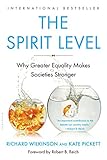If we focus on the demonstrable, then we can say this: (1) income inequality is increasing, and (2) excessive income inequality lowers the quality of life of everyone, even the rich ( http://www.amazon.com/Spirit-Level-Equality-Societies-Strong... ). So, purely out of shared self-interest we shoud all be figuring out how to reduce the inequality, by whatever mechanism.
The solutions needed to structurally change inequality have to do with trade policies, laws, political coalitions, borders, cultural interaction, and many other things which have very little to do with these 100 people and how much money they have. If we could solve the underlying causes of inequality, then we wouldn't need to figure out income redistribution schemes that compensate for a broken socio-economical system.
Some of that is a consequence of education (for instance, nutrition) or income (mental illness) but all of those are seriously worsened by inequality resulting from our education system. If you're interested, The Spirit Level (http://www.amazon.com/The-Spirit-Level-Equality-Societies/dp...) and Ill Fares the Land (http://www.amazon.com/Ill-Fares-Land-Tony-Judt/dp/0143118765...) both contain great discussions of this.


No. Inequality is the problem. Poverty has nowhere near the same damaging effect.
This book is essential reading on the topic:
http://www.amazon.com/Spirit-Level-Equality-Societies-Strong...
The authors use two test-beds: a comparison of countries around the world and a comparison of states within the US. With these, they show that with overall wealth held constant, it's the larger inequality that causes more social problems.
For example, the UK and Japan have roughly equal GDP and similar average incomes, but Japan is less unequal. On almost any measure you might choose of how well a society is doing, Japan is better. Mental health, drug use, teen pregnancy, violence, divorce, abuse, the whole lot. The same goes across all of the states and countries they looked at.
The sheer scale of the evidence is overwhelming. It's very rare in the social sciences for literally hundreds of studies to point to the same broad trend across so many different parts of the world.
Their work is a revolution as it overturns the common assumption which you expressed that poverty is the problem.